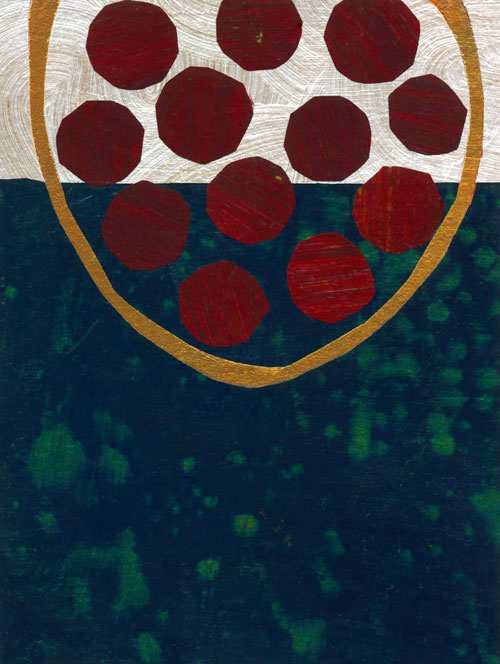
The Willing Catch © Jan L. Richardson
Reading from the Gospels, Epiphany 3, Year B: Mark 1.14-20
Thomas Merton, the famed Trappist monk of the 20th century, once took a picture that he titled “The Only Known Photograph of God.”
The picture was of a meat hook.
I keep thinking of this stark image, and Merton’s title, as I ponder this Sunday’s gospel lection, in which Mark offers his version of Jesus’ call to the kindred fishermen Simon and Andrew. “Follow me,” Jesus says, “and I will make you fish for people.” His invitation stirs the unsettling question: if fish are food, a catch intended for consumption, then what is it that we people are to God, once we fall into the net of the divine?
Long before the arrival of Jesus, the Jewish tradition had taken pains, in the form of the story of Abraham’s near-sacrifice of his son Isaac, to make clear that Yahweh doesn’t require human sacrifice. The God of Israel presents other conditions for right relationship, as we read, for instance, in Micah 6, where the question arises: “With what shall I come before the Lord, and bow myself before God on high?…Shall I give my firstborn for my transgression, the fruit of my body for the sin of my soul?” “…and what does the Lord require of you,” comes the response, “but to do justice, and to love kindness, and to walk humbly before your God?”
I wonder if the people of Israel ever wondered if human sacrifice might be easier, after all, than all this justice and kindness stuff.
It can feel consuming, being in relationship with God: it requires so much more of our very selves than simply offering a sacrifice that’s detached from us. And for all that it asks of us, our participation in God doesn’t offer much in the way of earthly security, as Mark reminds us: this lection begins with a mention of the arrest of John the Baptist, who would soon meet his earthly end in the context of a meal.
It’s challenging at times to reconcile the seeming paradox that giving ourselves to a God of love and mercy does not always protect us from heartache and suffering; in fact, it sometimes does just the opposite. Called to engage the world, we find ourselves drawn more deeply into the pain and despair present there—along with (thank God) the delight. In each place Christ calls us to notice and to embody the presence and love of God: to be the living body of Christ, who spoke of his own self as food, as sustenance.
As Merton recognized, it can leave us feeling like we’re on the meat hook of God, the way that God claims and hungers for our deepest selves and sends us into the world to be Christ’s body, to offer his sustenance. Given what a consuming, demanding, and sometimes perilous prospect it can be to share fully in the life of Christ, one might well wonder: what compels us to follow him?
What lures you to Christ? What is it about him that beckons you, calls to you, compels you not only to follow him but also to reach out in invitation to others? What is it about Jesus that hooks you?
In a culture that too often tries to scare and threaten us into a relationship with Christ, may we see clearly who he is and embody his fierce and sustaining love in a desperately hungry world. Blessings.
[To use the “Willing Catch” image, please visit this page at janrichardsonimages.com. Your use of janrichardsonimages.com helps make the ministry of The Painted Prayerbook possible. Thank you!]

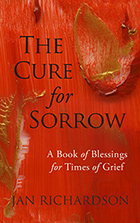
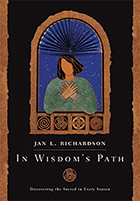
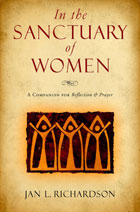
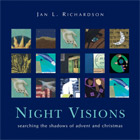
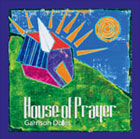
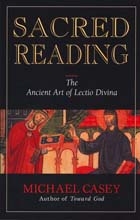
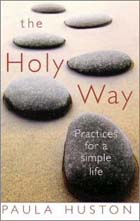
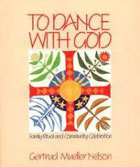
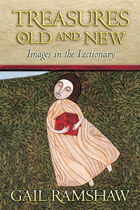
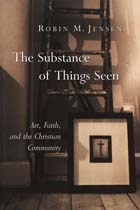
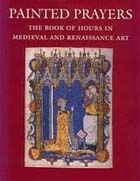
January 25, 2009 at 5:20 PM |
I value so much that your posts always make me think – this question of what are we to God I would never have thought of in connection with today’s Gospel and the fishers of men. That meat-hook image is startling, as well.
What lures me to Christ (and there’s another fishing term, the lure)? We’ve been discussing today the various texts in which he says that family life is not as important as God (Mark 3 31:35, his mother, brothers and sisters waiting outside etc etc). I think it’s something about the absolute nature of his demands: leave everything and follow me.
January 25, 2009 at 5:43 PM |
Thomas Merton – he has spoken to me so clearly since the beginning of Advent. I’m now into “Thomas Merton – A book of Hours”, the 7 Story Mountain is on its way from Amazon, and everywhere I turn I find another beautiful quote that not only leads me to TM but of course to God and JC! Your words about perhaps “human sacrifice might be easier than justice and kindness” have pulled up a post in me. I will be referring any of my readers, a small group at best, back to your wonderful sight to this post and to your site in general. Thank you for your posts and for your art – both powerfully impact my visual and spiritual sense of God’s presence.
January 26, 2009 at 5:35 PM |
Wow, as I’m working through some paperwork for my dCOM about my calling, I took a break to see what you had posted this week and I was blown away by the image of the meat hook! I think one of the scariest issues I’m dealing with is that feeling of being drawn into that world of despair that you mention. But then if that’s where one needs to be …..
I guess I’ll revisit what I’ve written so far. Peace, jeff
January 26, 2009 at 6:36 PM |
Thanks so much, Tess and Sunrise Sister and Jeff! Your words are a great gift to me.
Jeff, blessings to you as you work on your dCOM paperwork! In regard to being drawn into the despair of the world—I think one of our greatest challenges as Christians is to be present and minister to the despair and suffering of the world without being sucked into it in a way that depletes or destroys us. Despair has a way of feeding on itself (and us) in a way that can distort our perceptions and damage our ability to recognize the delight and beauty that God has placed in the world. One of the primary gifts of the (healthy) spiritual practices that we find in the Christian tradition is that they keep us connected with and grounded in our Source, who seeks to sustain us and does not wish us to despair. It can take a lot of energy to persist in our spiritual practices, to keep seeking the sustenance that God offers, but I don’t know how else we keep our vision clear to see what God is calling us to do, and where God is needing us to do it, and how God desires to nourish and hearten us in that.
Some people choose to be in places of despair, thinking that God dwells primarily in the most difficult and painful places and thus requires us to be there as well—i.e., if we’re not suffering for Jesus, then we’re not doing his will. I think instead that we need first to seek after God, with as much openness as we can muster to the possibilities of where that seeking will take us. As we keep our focus on God, we surely will journey into places of suffering and pain—but we go there as a result of following the Christ who hooks us and lures us, and calls us to specific places based on who we are, rather than going there simply for the sake of seeking out suffering and pain with the thought that they’re somehow salvific in and of themselves.
This connects with what I’m chewing on as I reflect on this Sunday’s gospel lection from Mark 1.21-28, which challenges us to ponder how we contend with/respond to the spiritual forces that manifest as pain, suffering, and evil—those spiritual forces being a topic that contemporary mainstream Christianity doesn’t seem to give a whole lot of attention to.
I don’t know if this connects with what you’re pondering as you reflect on your dCOM paperwork…but these are some of the thoughts your comment stirred in me…things I need to remind myself of periodically! Thanks again.
January 27, 2009 at 11:31 AM |
Some deep dialogue going on here. Quite stark and a place I don’t often go as you said, Jan. Taking time to digest and ponder. I especially received your comment: “but we go there as a result of following the Christ who hooks us and lures us, and calls us to specific places based on who we are”.
Thanks also for reminding me about Thomas Merton. I pulled his ‘Book of Hours’ off my shelf again.
January 27, 2009 at 11:43 PM |
Thank you for taking your thoughts even further. I couldn’t agree more with you. I see a constant search for Wisdom keeping us grounded in our Source and allowing the beauty and delights that have been given to be revealed. Thanks again.